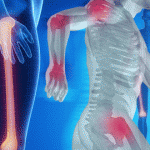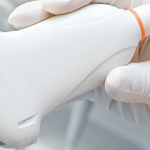NEW YORK (Reuters Health)—Even doctors and nurses don’t always follow the healthy lifestyle choices they recommend for patients to reduce the risk of medical problems, such as obesity, heart disease and diabetes, a U.S. study suggests. Although rates of these conditions appeared lower among healthcare workers than other people, the diseases were still common. They…
J&J’s Stelara Succeeds in Phase 3 Crohn’s Disease Trial
(Reuters)—Johnson & Johnson’s Stelara (ustekinumab) was significantly better than placebo at inducing clinical response and remissions in patients with moderate to severe Crohn’s disease, according to data from a late stage trial, providing ammunition for a potential expanded approval of the medicine. Stelara, a biotech medicine that blocks inflammation, is approved to treat plaque psoriasis…
Rituximab May Benefit Patients with Refractory JIA-Associated Uveitis
NEW YORK (Reuters Health)—Rituximab may calm juvenile idiopathic arthritis (JIA)-associated uveitis and especially benefit patients who haven’t responded to other biologic treatments, a study from Italy suggests. With its convenient dosing schedule, rituximab may be a new treatment option for patients with autoimmune diseases, especially for those who have not responded to tumor necrosis factor…
Use of Unspecified Codes in ICD-10: What You Need to Know
The ACR Practice Management and Coding department will periodically update the membership on the new ICD-10 coding guidelines and conventions to assist practices with accurate billing. Our top question during the first week of ICD-10 implementation was on the use of unspecified codes…
Hospital-Owned Physician Practices Linked to Higher Prices
(Reuters Health)—Outpatient care may cost more when hospitals own the medical practices or employ the physicians, a U.S. study suggests. Hospital employment of doctors and ownership of physician practices has grown over the past decade as healthcare providers seek to curb expenses with economies of scale and deliver better coordinated treatment to patients. Research reported…

FDA Warns ‘Don’t Use Tramadol in Children’ & More
New studies show ABT-494 is an effective alternative to anti-TNF alpha agents, as well as methotrexate, for RA. Also, the FDA issued a warning against using tramadol for young patients due to their increased risk of respiratory side effects…

Celiac Disease in Pediatric Patients
A retrospective study shows that some patients presenting for pediatric rheumatology evaluation test positive for celiac disease—some without showing any gastrointestinal manifestations. Treatment includes a gluten-free diet…

Researchers Identify Molecule That Promotes Osteogenesis
New insights into bone cell biology—including the identification of parbendazole, a bone anabolic compound that promotes bone formation—may lead to better treatments for osteoporosis…

Legalities of Telemedicine
A brief has been filed with the U.S. Supreme Court that, if the court decides to hear the case, could have wide-ranging implications for online medical care and the limits of a physician’s First Amendment right to free speech. Medical Advice Via e-Mail Institute for Justice Senior Attorney Jeff Rowes filed the brief at the…

Musculoskeletal Ultrasound: A Valuable Tool for Diagnosing Rheumatic Illnesses
Musculoskeletal (MSK) ultrasound is a valuable imaging modality for the practicing rheumatologist and provides an efficient tool with high diagnostic value in the evaluation of patients with musculoskeletal complaints. The use of MSK ultrasound has evolved in the U.S. due to the emergence of less-expensive, portable ultrasound units, which provide high-quality gray-scale and power Doppler…
- « Previous Page
- 1
- …
- 562
- 563
- 564
- 565
- 566
- …
- 830
- Next Page »